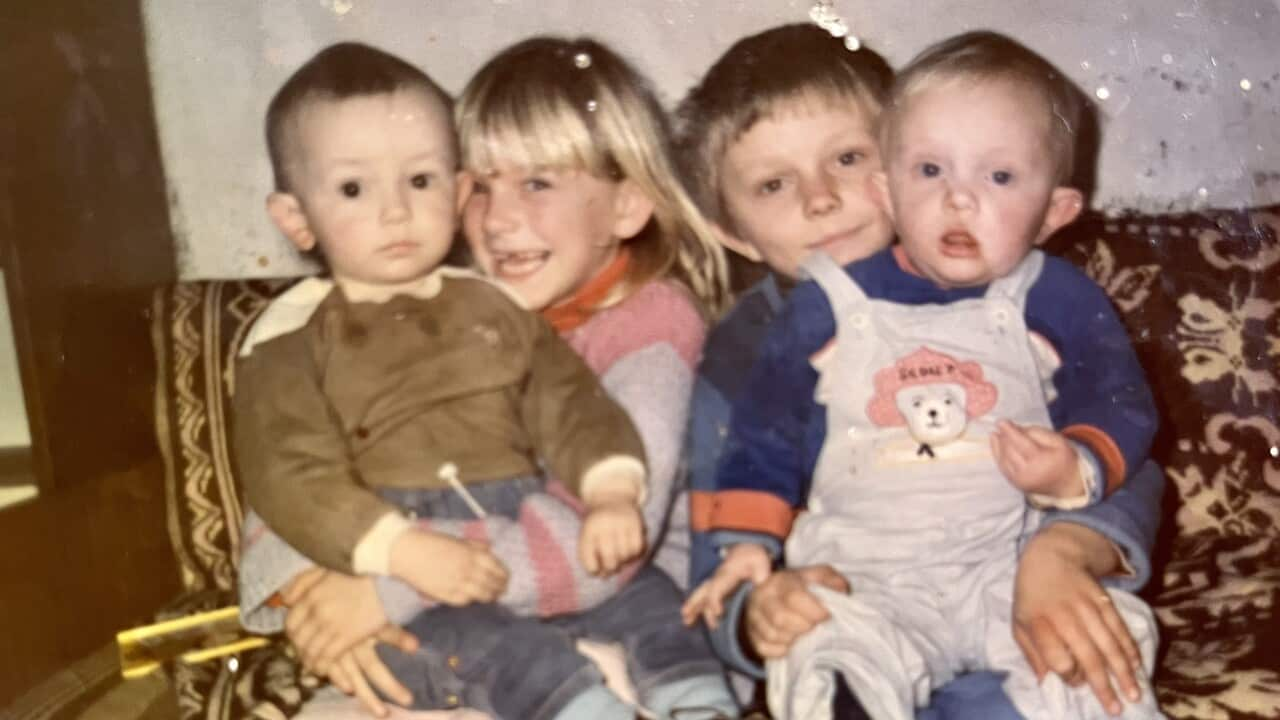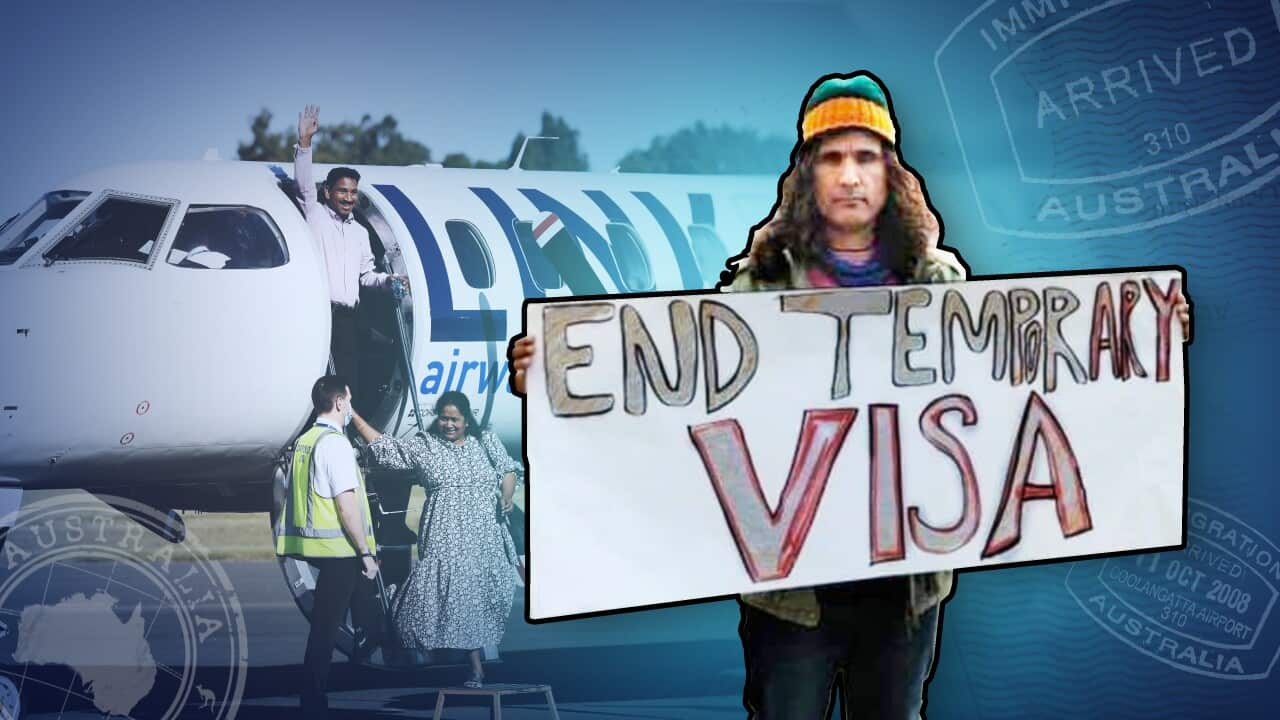Growing up with two football-obsessed brothers, I would awake bleary-eyed in the early hours of every morning to the sound of roaring football spectators emanating from our living room.
The voice of Les Murray narrating live football action from Europe, and my brothers arguing over which team was better: Chelsea or Manchester United. Their passion for the English Premier League growing so intense, it nearly spilled into fist fights.
Such was the obsession with the beautiful game in our household.
Growing up 'ethnic' in Australia, SBS and its iconic broadcaster Les Murray - who died five years ago next month - were a constant presence in my life. But it was only recently that I discovered Les, like me, came to Australia as a child refugee. His family fled war and Soviet occupation in post-World War II Hungary.

SBS football commentator Les Murray. Source: SBS News / SBS News
During his lifetime, Les made a tremendous contribution to humanising the plight of refugees, later passing on this legacy to .
As Les once said: "Refugees, perhaps more than other immigrants, are more likely to make a positive contribution to their new country, driven by a need to give something in return for being given a chance to start again after a terrible experience".

Danijel Malbasa (far right) with his siblings. Source: Supplied / Danijel Malbasa
During his time, he advocated for refugees, often going against the grain and the prevailing zeitgeist. But then, wasn’t SBS always the home for that?
Les normalised his refugee difference without ever once compromising who he was or what he stood for, or the message he wasn’t so much selling but offering. He did this through the beautiful game, where cultural difference is negated by a round-ball game. It was the game to humanise the world, to welcome the strangers who were different colours or races or gender expressions or sexualities.
Les did this on SBS, a place where difference and uniqueness were embraced.
Football was the 'world game' then, so rightly on SBS, in much the way is now. It was a game only played by so-called 'wogs' in Australia before it became mainstream. A game in which Adelaide United's .
I remember SBS for its risqué foreign movies played every night alongside Queer as Folk – a show I would secretly watch, quickly switching to mainstream channels when a family member would walk into the room.
I also remember the channel broadcasting shows featuring transgender rights icons Marsha P. Johnson and Sylvia Rivera, and it being the home of everything from a quirky Greek variety show to the Eurovision Song Contest.
Les and SBS championed and normalised cultural differences. I switched on SBS and I was home.

Danijel spends his time speaking out for refugees and asylum seekers, both at a judicial and advocacy level. Source: Supplied / Danijel Malbasa
I believe the narrative concerning the way we talk about refugees and people seeking asylum is starting to shift in Australia. The Biloela community wanted the Nadesalingam family to come back home to Bilo, and it happened.
The Covid-19 pandemic also exposed parallels with the refugee experience: closed borders, separated families, emptied shelves. Victorian bushfires and Queensland floods showed how we can become refugees in our own country. The Djokovic saga exposed the plight of
Now, 6,000 humanitarian visas have been granted for those fleeing Ukraine, support for the Action For Afghanistan campaign has resulted in a commitment to accept 16,500 new refugee visas for Afghan refugees. The new South Australian Premier Peter Malinauskas - himself a grandson of refugees - drew inspiration from his refugee neighbours, the Alkhalil family, on the morning of his victory last month.
Australians remember that our country gave the world the Refugee Convention. Our signature brought it to life. What a proud legacy. We set the standard as decent international citizens for other countries to follow. That work was championed by Doc Evatt, an Australian judge.

Danijel Malbasa believes the narrative about refugees is starting to shift in Australia. Source: Supplied / Aaron FRANCIS
Refugee Week is held from 19 to 25 June.
Danijel Malbasa works as an industrial lawyer in Melbourne and is the inaugural recipient of the Australia for UNHCR - SBS Les Murray Award for Refugee Recognition.
Would you like to share your story with SBS News? Email











